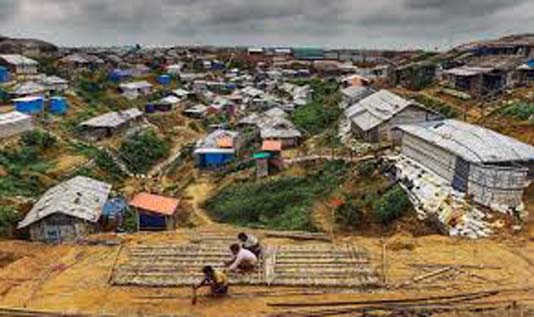DHAKA, Oct 16, 2018 (BSS) – The United Nations Development Programme (UNDP) today launched a US$ 4.8 million project with Swedish supports for waste management in makeshift camps in Cox’s bazaar that offered refuge to over 1.1 million forcibly displaced Rohingyas of Myanmar.
“The project has been initiated with Swedish financial assistance which we will implement in collaboration with Bangladesh government,” a UNDP spokesman told BSS.
A UNDP statement, meanwhile, said the project would develop a sustainable solid waste management mechanism in Cox’s Bazar, which witnessed an overnight increase of 1.5 million people due to Rohingya influx.
On the occasion, a meeting on “Sustainable Solutions to Solid Waste: A Local Response to the Rohingya Crisis” was held in Cox’s Bazar.
Speaking as the chief guest, Additional Secretary and the Commissioner, Refugee, Relief and Repatriation Commission (RRRC) Mohammad Abul Kalam, said solid waste management is now an urgent need in Cox’s Bazar, considering the pressure caused by the over-population and the massive volume of waste produced daily in the crammed area.
UNDP Country Director Sudipto Mukerjee said even though Bangladesh has shown enormous generosity by opening its doors to nearly 700,000 refugees.
“UNDP with support from Sweden has come forward to respond to that crisis in order to keep Cox’s Bazar clean and free from pollution, and this will the very first project in Cox’s Bazar on solid waste management in line with this year’s World Habitat Day theme, which is Municipal Solid Waste Management ” he added.
UNDP’s Solid Waste Management specialist Faisal Ridwan made the keynote presentation.
First Secretary of Sweden Embassy Marcela Lizana Bobadilla, Cox’s Bazar Additional Deputy Commissioner (General) Mahedul Islam and UNDP’s Programme Specialist Arif Abdullah Khan, among others, spoke.
The meeting was told the three-year project will contribute to environmental protection, prevention of diseases, promotion of hygiene and proper sanitary standards, income generation for host community and support waste reduction and recycling.



